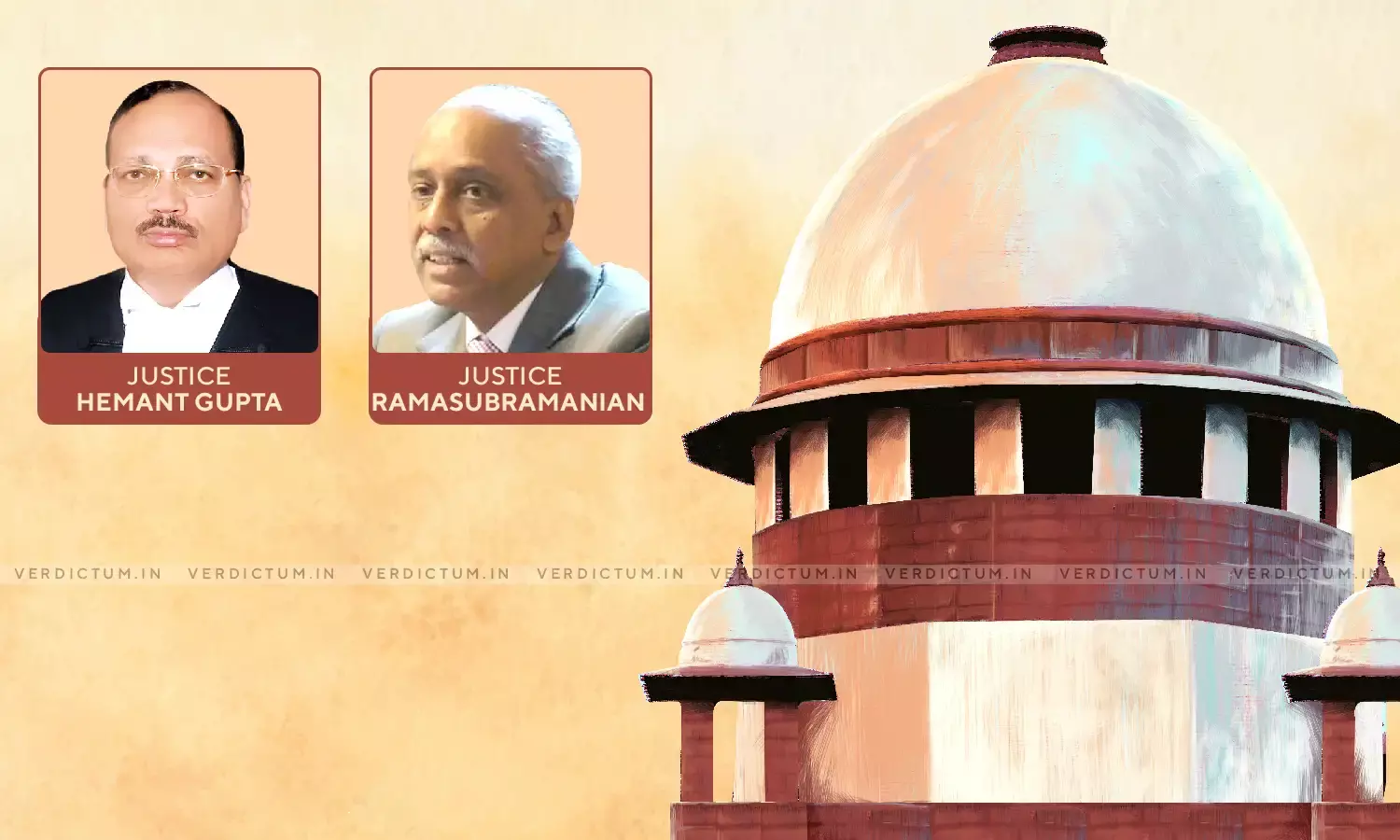Initiation Or Non-initiation Of Criminal Proceedings Against Employee Has No Bearing On Departmental Proceedings – Supreme Court

A two-judge Bench of Justice Hemant Gupta and Justice V. Ramasubramanian has held that initiation of criminal proceedings against an employee or not initiating the proceedings has no bearing to prove misconduct in departmental proceedings under the Industrial Disputes Act.
An appeal was preferred by the Appellant-Employer assailing the judgment of the Allahabad High Court which had upheld the order of the Industrial Tribunal. The Tribunal had directed for the reinstatement of the Respondent in service and ordered 50% salary to be paid for the period when he was not in employment.
In this case, the Respondent-Conductor was removed from service over alleged misconduct. The Respondent raised an industrial dispute which was referred to the Tribunal. The Tribunal had held that the inquiry conducted against the Respondent was not proper and fair.
It was stated by the passenger travelling in the bus where the Respondent was working as Conductor that they had given the money but the former did not issue tickets to them. The witness testified that he tried to record the statements of the passengers, the conductor misbehaved with him and used bad words.
The Tribunal had set aside the order the removal from service of the Respondent holding that the statements of passengers should have been recorded by the Inspector, or atleast their oral statements. The Tribunal also held that the Inspector did not inspect the bus. Also, if the conductor had misbehaved with the Inspector, an FIR could have been lodged. On these grounds, the Tribunal had set aside the order of removal.
The Appellant contended before the Supreme Court that the Indian Evidence Act applies to all judicial proceedings in or before any Court. Since the domestic inquiry was not by a Court, therefore, strict rules of the Evidence Act were not applicable to such domestic inquiry.
While the Respondent-Workman argued that the statement of the Inspector did not inspire confidence as he did not record the names and addresses of the passengers. Further, it was contended that there should have been some evidence to show that there were passengers who were traveling without tickets.
The Apex Court noted that the order of the Tribunal and High Court were clearly erroneous and not sustainable in law.
"The representative of the employer has not been cross-examined on the question that he has not inspected the bus on 12.11.1998. He has deposed that when he tried to record the statements of the passengers, the conductor misbehaved with him and used unruly words. Even that part of the statement has not been disputed in the cross-examination. Therefore, the fact that the Inspector was not able to record the names and addresses of the passengers cannot be said to be unjustified," the Court held.
Further, the Bench observed, "Since the passengers are low-fare paying passengers, they might have been hesitant to get involved in the issues of any action against the conductor. The Inspector had found that 17 passengers were not issued tickets and such statement of the Inspector has also not been disputed in the cross-examination."
"The Tribunal or the High Court could not reject the evidence led by the employer in respect of misconduct of the workman before the adjudicator. Still further non lodging of FIR cannot be the circumstance against the witness examined by the employer," the Court opined.
Additionally, the Court held, "The order of removal from service cannot be said to be unfair and unjust in any manner which would warrant an interference at the hands of the Tribunal and the High Court. The three reasons recorded by the Tribunal are absolutely perverse and not supported by any evidence. The Tribunal had misapplied the basic principles of law and the High Court has thereafter wrongly confirmed the order."
Accordingly, the Court allowed the appeal and set aside the impugned order of the High Court.
Click here to read/download the Judgment

